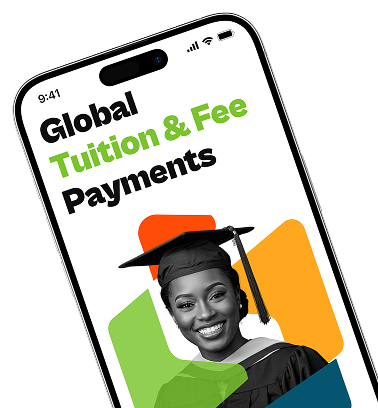Oluwatosin Adenuga couldn't afford British Airways for a trip to London. She must find ways to save funds before relocating to the UK as an international student. An opportunity presented itself when she saw a website that offered a great flight discount to London with British Airways. She didn't think twice before paying on the site, which was her financial doom. She lost her money and got into more financial mess to raise money for her flight.
Whether you want to take a romantic getaway in the Caribbean or travel to the United Kingdom for your studies, online travel scams often loom like little demons to frustrate your travel plans. Every day, millions of people plan and book travel worldwide, and unfortunately, someone will fall into the traps set by online travel fraudsters.
As an international student, you should learn how to detect a scam travel agent if you don’t want to get into trouble.
Read: How to Avoid Student Visa Scams
Types of Online Travel Scams
When travelling, you should be vigilant about potential scams like the following:
1. Fake travel websites: The internet has many fake travel platforms with great deals you may not find elsewhere. After payments from victims, the websites deny them the agreed services.
2. Bait and switch: Customers are attracted to discounts with hidden fees.
3. Phantom vacation rental: Fraudsters display false vacation pictures to lure customers to make payments.
4. Skimming and card cloning: Victims suffer from credit card theft in this scam.
5. Public and fake WiFi scams: Cybercriminals often use public WiFi scams to manipulate or intercept victims’ data.
6. Fake airline scams: Many travellers often use fake airline websites to book or call customer support numbers.
7. “Free” vacations: You might get emails, texts, or calls about a vacation contest you won. However, you must make some payments before you can travel.
8. International travel document scams: The internet has numerous copycats of countries' websites offering help for international travel visas, documents, or passports. However, you must pay some fees to these websites.
9. International driving permit scams: Online scammers have websites that promise to offer international driving permit (IDP) but sell fake IDPs.
10. Booking scams: Booking scams come in the form of fraudulent hotel reservation sites, fake airline tickets, or non-existent car rentals.
Note: Online scammers work most during festive seasons and vacations when the demand to travel is high. For instance, during the summer or Christmas period, millions of travellers want to search for accommodation or book flights.
Signs of Travel Scams
A. Website or travel agents offer a "free" service, but you must pay for something to get it. When you calculate these fees or taxes, they add up to a reasonable sum of money.
B. You don't receive specific details about your travel offers, like the airline's name or address of a hotel.
C. The only means of making payments is through gift cards, wire transfers, or other undetectable means.
D. You are pressured to make a decision quickly about your travel package.
E. Online fake travel agents might offer low prices for premium vacation properties, hotels, or flight tickets.
Read: Employment Scam: A Guide for International Students
How to Avoid Travel Scams
Watch out for Fake Travel Sites
If you want to know how to detect a scam travel agent in Nigeria, check for suspicious travel websites. You can easily avoid fake airline tickets, bogus holiday packages, fake accommodations, or car rentals if you stay away from fake websites. Some of these websites come with online advertisements and pop-ups that direct you away from the website.
How can you check if a website is real? You should check the website’s domain name and ensure it is a top-level domain (TLD) name with a .com suffix, not .org or .net.
Avoid using Public Phone Chargers
You may suffer from “juice jacking” when you use public cellphone chargers. The public chargers might be infected with malware that can give hackers access to your phone, tablet, or computer.
Be Careful When Paying Online Booking Payments
Make payments to secure websites using authentication and encryption to protect their customers’ transactions. As a result, if a website does not have a URL with “https” and a padlock icon (an SSL certificate), don't make any transactions.
Don’t Reveal Sensitive Information
When searching for travel support, you should avoid revealing your personal, flight, and passport details online. You can only reveal certain information to legitimate travel websites when needed.
Avoid Extreme Low Hotel Room Rates
No matter the temptation, you must not use websites offering meager prices or unbelievable hotel room deals. You can call the hotel's customer service number to verify such information.
Don’t Fall for Free Air Ticket Offers
Avoid online booking rip-offs when it comes to flight tickets. With the increase in air ticket scams, fraudulent airline competitions, or fake travel deals, you should be careful of falling for free air ticket offers. Do not download an app or click a link to take advantage of any free airline travel offer.

Ignore Emails to ‘Confirm your flight’
Many travellers fall for this scam, believing their airlines sent them such emails. When you receive an email asking to 'Confirm Your Flight,’ don't click the link. You should double-check the email address and ensure that it was from the airline company you made payments.
Don’t Make Full Payment in Advance
Some travellers have faced a dilemma after making full payments in advance. When some of these travellers arrived at their destinations, they discovered they didn't have rooms, especially when they used fake third-party websites or social media pages. Legitimate hotel websites may not always charge customers in advance.
Do Some Research
Don't pay or sign any document until you read the terms and conditions. Learn about the refund and cancellation policies of the company and check travel companies or agents with the words “scam,” “review,” or “complaint.”
Don’t Pay With Gift Cards or Wire Transfers
Fake travel package promoters often suggest that customers make payments with gift cards, wire transfers, and other unpopular payment options. Don't fall for this trick.
Do not Disclose Location on Social Media
Avoid displaying your location on social media while travelling. Sharing pictures or activities on your social media pages gives your location to the world, especially hackers or criminals.
How to Shop for Travel

Check out Comparison Websites and Apps
You should know what to expect when travelling by using comparison apps or websites to check for hotel or airfare rates in real-time deals.
Get Recommendations from Trusted Sources
You can talk to family and friends about good vacation rentals, travel agencies, hotels, and travel packages.
Ask about Mandatory Fees and Taxes
Call customer care services for mandatory fees and taxes associated with your bookings before you can make payments.
Buy Travel Insurance from Licensed Firms
If you must buy travel insurance, ensure you buy from a licensed agency or company.
How to Detect Fake Travel Websites
Use Better Business Bureau: Check official resources about the website from the Better Business Bureau (BBB).
Online reviews and ratings: You can read reviews and ratings from Google, Yelp, or TripAdvisor about travel websites.
Secure payment options: Don’t use travel websites that offer secure, well-known payment options.
Accreditation and licensing: Ensure that the travel agency is a member of recognized industry organizations like the American Society of Travel Advisors (ASTA) or IATA (International Air Transport Association).
Transparent pricing: Reputable travel websites offer clear and upfront about all costs.
Read: Marriage for Papers Scam: A Guide For International Students
Does travel insurance cover scams?
No. Travel insurance covers baggage and personal effects coverage, trip cancellation or interruption coverage, rental property and car coverage, medical coverage, and accidental death coverage.
Does travel insurance cover stolen money?
Yes. Travel insurance can provide compensation as optional cover in a policy's 'Personal belongings' section.
How long does travel insurance last?
Annual travel or multi-trip insurance lasts a full calendar year from the date the policy starts.
Can I get a refund for unused travel insurance?
Yes. Travel insurance can be canceled at any time and for any reason.
You can use the Pay4Me app to pay your student visa fees, tuition and application fees, and examination fees and book your hotel within minutes.



